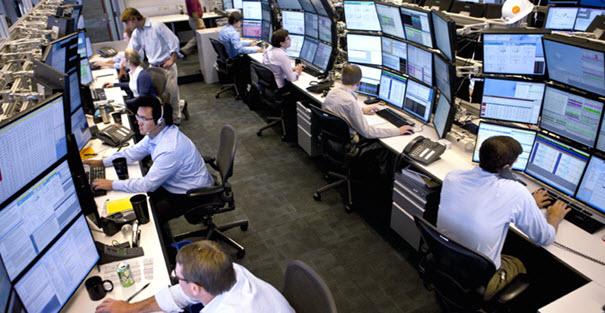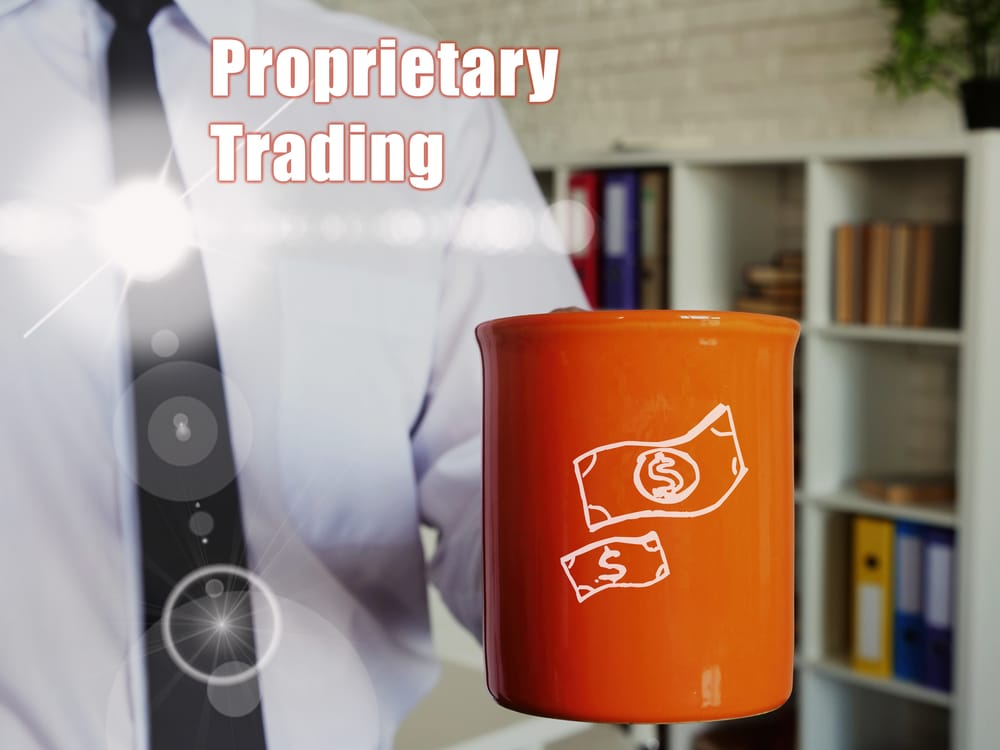The growing popularity of forex and the contracts for difference (CFDs) is fuelling demand for proprietary trading firms. Wealthy and institutional investors are increasingly looking for ways to put their capital to use and lock in substantial profits for themselves in the capital markets.
What is a proprietary trading company?
Simply put, it is a brokerage firm or private company set up to trade stocks, bonds, options, and other financial instruments using its own money. In this case, money is not pooled from other investors for investing purposes. Such companies don’t hold any customer accounts.
While such firms don’t hold customer’s accounts, they still rely on outside traders referred to as proprietary traders. The firm allocates capital to these professionals requiring them to trade on behalf of the company and generate consistent profits.
In most cases, trading limits are placed on what the proprietary traders can do and the risk they can absorb based on the allocated capital. For instance, the firm can have restrictions on the trading strategies that the personnel can deploy, limiting them to one developed by the firm.
However, in some cases, proprietary traders have the free will to deploy their own strategies as long as they maintain a given risk profile and generate the desired returns. Additionally, the personnel can place trades from the firm’s official location or trade remotely. The ultimate goal is for the prop traders to generate optimum and consistent profits depending on the capital allocated by the investor.
The starting capital for running a proprietary trading desk depends a great deal on the kind of operation that one plans to run. A small proprietary trading firm employing few traders can start with as much as $100,000. However, in most cases, more than $100,000 may be required to launch a massive operation able to play in the same league as other big market makers.
How proprietary trading works
Proprietary trading works on an investor pooling his own money that acts as trading capital in the firm. In this case, the firm invests on its behalf rather than clients even though other people carry out the actual trading activity.
In some instances, prop traders are required to provide part of the capital for trading. The setup is designed to ensure that the traders act in the firm’s best interest, given that their money is also on the line. Such a setup goes to ensure the traders don’t engage in excessive risky trades.

Any amount of profit that the trader makes is split between the firm and the trader. The exact ratio in which the profits are split depends on how the capital was provided. In addition, performance bonuses are also added to the returns that the traders go home with.
A financial institution or brokerage firm can set up a trading desk and employ some people to trade its own money instead of collecting amounts from investors or customers. The trades placed are usually speculative in nature and done through a number of financial instruments.
In addition, prop firms assign specific instruments and markets to various traders depending on their trading skills. The division prevents burnout while allowing personnel to specialize in markets they are conversant with and able to generate consistent returns. Such firms also set the degree of financial risk that each trader can absorb.
Financial firms or investors that engage in proprietary trading believe they have an edge or a proprietary strategy that will allow them to earn substantial returns. The investments play is mostly fuelled by the fact that such investors or firms can lock in all the profits instead of having to split it with clients, as is the case with other investment operations.
Setting up a prop trading firm
The first step in the process entails selecting a technology that will power the prop trading firm. It is this technology that the personnel will be required to use in addition to other strategies to generate consistent profits.
While there are several unique software offerings in the market, a firm may have to settle on one that perfectly addresses the needs of a given trading strategy. Additionally, it will have to be user-friendly and cost-effective.

In addition to selecting white label trading technology, it is also important to register the business. The process entails securing the required licenses that allow one to run a massive trading operation. The compliance process varies from one jurisdiction to another.
While setting up a prop trading firm, a money management license is not required, it is highly recommended. Additionally, it would be important to set the firm as an S-corporation to save on taxes. The categorization also goes a long way in shielding against personal finance in the event a firm loses money.
Benefits
Prospects of higher quarterly and annual returns are one reason that financial institutions and wealthy investors jump to the opportunity of setting up and running proprietary trading desks. Such operations allow the proprietary investors to realize 100% of the gains earned instead of having to split with other investors.
Proprietary trading also allows big firms and wealthy investors to become significant players in the market. Depending on the amount of capital invested in the operations, such firms or investors play a pivotal role in providing liquidity to some securities, thus significantly impacting the market.
Bottom line
Proprietary trading firms are becoming increasingly popular among large financial institutions and investors looking to run independent trading operations. Instead of having to pool capital from clients, such operations allow firms and investors to deploy their own capital that people trade on their behalf, thus being able to lock in 100% of the profits.
